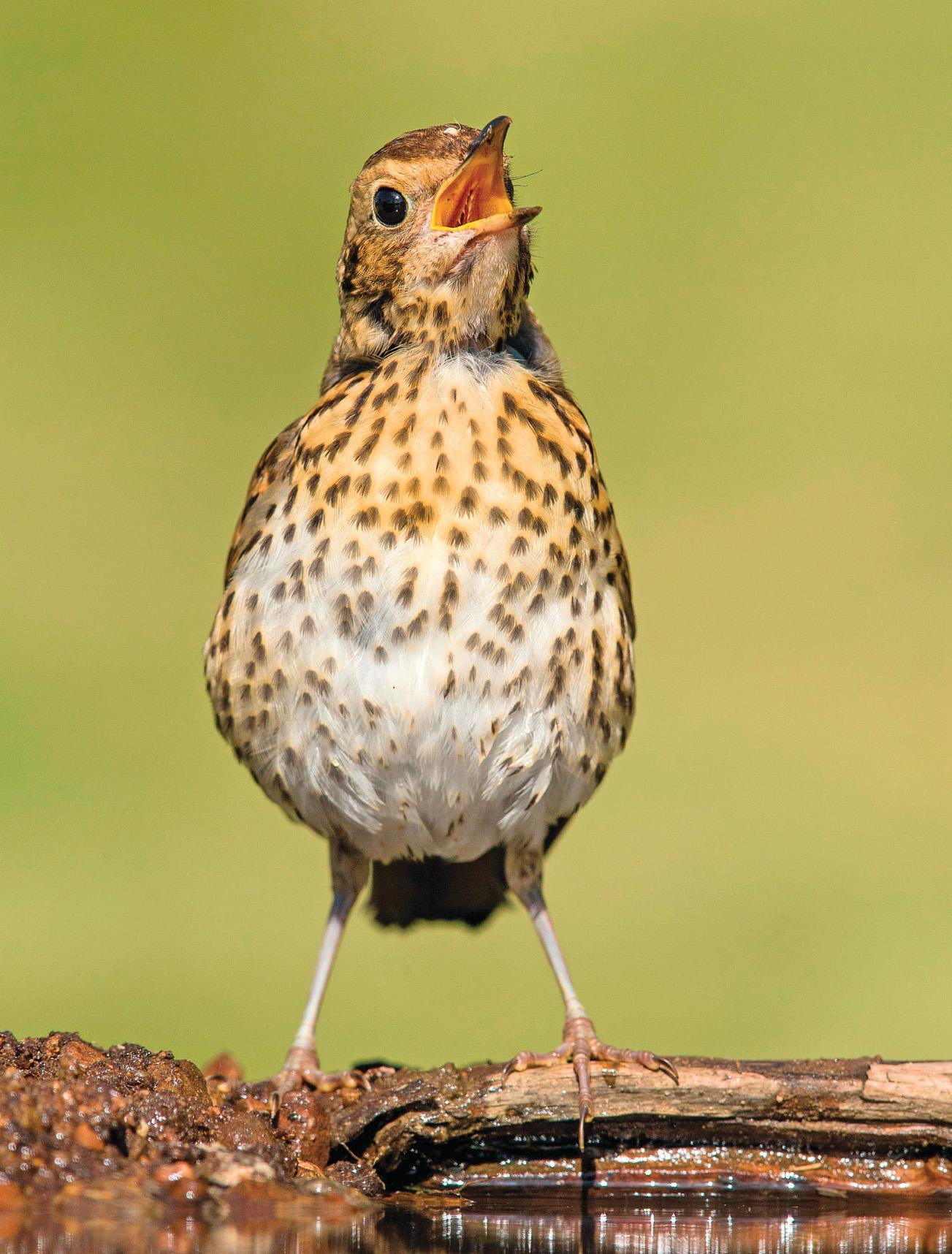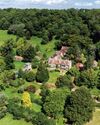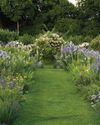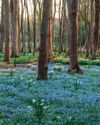Sing on, sweet bird

IT has been suggested that humans are hardwired to respond positively to other animals with rounded shapes that mimic those of our babies. Such creatures, runs the argument, are inadvertent beneficiaries of our parenting instinct and thus enjoy greater public affection. We can see it at work perhaps in the popularity of hedgehogs, puffins and owls.
I wonder if it helps explain our attachment to thrushes? The birds can puff themselves out until they look like spheres with tails. Not only are their shapes rounded, but four of the six British species bear spots upon their pot- bellied breasts. They are rounded in both shape and in pattern.
One thing we know— they stand among the most beloved of British birds. I have known people so intimate with individual thrushes in their gardens that the birds would enter the houses to feed or take food from the hand. One local friend has had the same female blackbird nest in his garden for six years. Not only can he recognise her, but she knows him and she calls him specifically when she wishes to be fed. Often, the relationships are ongoing, passed down between generations of the same bird family.
There is some ecological evidence to suggest that our affections for thrushes are reciprocated. The blackbird is arguably the most popular of all, but it was originally an inhabitant of pristine forest, to which its mellifluous song is sonically adapted. Blackbird vocalisations have a low fre- quency and such sounds carry better through the dense foliage of wooded environments. Yet blackbirds have, in part, forsaken forest. Their favourite sites now— the places where they achieve their highest breeding densities—are suburban gardens.
We love them and, it seems, they, in turn, love to live alongside us.
Diese Geschichte stammt aus der September 11, 2024-Ausgabe von Country Life UK.
Starten Sie Ihre 7-tägige kostenlose Testversion von Magzter GOLD, um auf Tausende kuratierte Premium-Storys sowie über 8.000 Zeitschriften und Zeitungen zuzugreifen.
Bereits Abonnent ? Anmelden
Diese Geschichte stammt aus der September 11, 2024-Ausgabe von Country Life UK.
Starten Sie Ihre 7-tägige kostenlose Testversion von Magzter GOLD, um auf Tausende kuratierte Premium-Storys sowie über 8.000 Zeitschriften und Zeitungen zuzugreifen.
Bereits Abonnent? Anmelden

A brush with greatness
Victor Hugo found solace in art, but dismissed his drawings as mere things made 'during hours of almost unconscious reverie'. Now, a Royal Academy exhibition reveals how powerfully they engage the imagination

Havens and hideaways
Some houses offer that little bit extra– a garden building to enhance your quality of life

A night on the tiles
From bloody beginnings of drunken mayhem in public houses, it is somewhat surprising that the game of dominoes reached pearl-encrusted heights in our royal palaces

The legacy Gertrude Jekyll and herbaceous planting
Until Gertrude Jekyll showed us how to plant a flower border brimming with satisfying waves of colour, form and texture, no one had thought to do it.

Building on a dream
Evenley Wood Garden, Northamptonshire When Nicola Taylor took on her plantsman father's flower-filled woodland, she knew more about horses than trees, but, as Tiffany Daneff discovers, that hasn't stopped her from making a great success of the garden

Take a seat
What makes a chair supremely comfortable? The rake, the suspension system, the frame or the fillings

Sour to the people
Vibrant, tangy and full of flavour, malt vinegar is still the best British condiment to slosh over hot fish and chips

My favourite painting Sir James MacMillan
Le Christ en banlieue (Christ in the suburbs)

The architect for me
In the first of two articles, Clive Aslet explores the relationship between Sir Edwin Lutyens and perhaps his most important private client, the politician and financier Reginald McKenna

Directors take centre stage
The imaginative vision of those behind the scenes brings out the best acting in Shakespeare and Chekhov revivals
